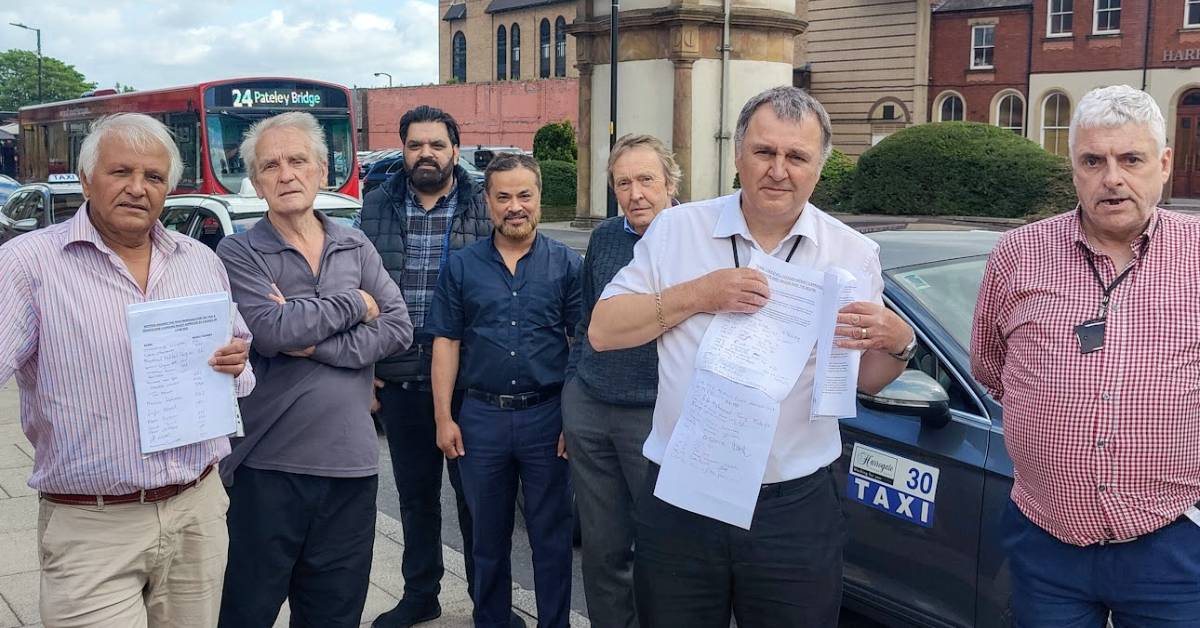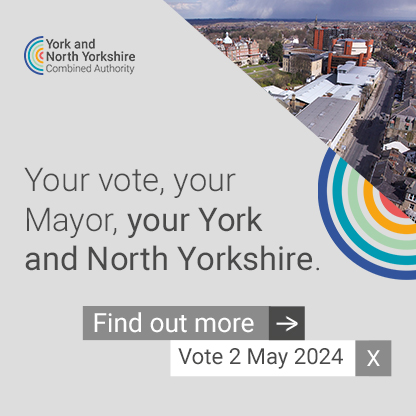A group of over 100 taxi drivers has said it feels unfairly targeted by Harrogate Borough Council after the authority agreed new licencing conditions that include suspending drivers who get seven penalty points for speeding.
The conditions also stipulate drivers must keep taxi plates on their vehicles even when they are not working and they must attend mandatory training courses.
The council has said the changes are “reasonable” and will improve safety for passengers but cabbies argue the policies are draconian and will put good drivers out of work.
Several drivers the Stray Ferret spoke to today on Harrogate’s taxi rank on Station Parade said the new conditions were the last thing they needed after a tough couple of years due to covid and spiralling fuel costs.
Currently drivers face a suspension if they tot up 12 points for speeding.
‘Totally out of order’
Dave Goodall, a taxi driver at Blueline, called the new conditions “upsetting” and “totally out of order”.
He said drivers could easily rack up thousands of miles a month and were faced with an ever-increasing number of hidden mobile speed vans around the Harrogate district, as well as cameras in nearby cities such as Leeds, York and Bradford.
He said:
“To have this put on us, on top of everything else, it’s a bit too much.”
Mr Goodall said cabbies often had difficult customers who were drunk, high on drugs or had mental health issues, which could distract drivers and result in them inadvertently going over the speed limit.
He added:
“If someone is caught doing 70mph in a 30mph zone, yes, they should be reprimanded.
“But to say if you get seven points you could be suspended, we think that’s totally out of order. With the best will in the world it’s so easy to get points sometimes.
“There are drivers who are on six points now who are very, very nervous. They are not bad drivers.”
Read more:
- Council starts legal proceedings against Travellers in Knaresborough
- ‘Unforeseen circumstances’ delays start of Oak Beck Bridge scheme
Musa Ebzao, a Hackney cab driver in Harrogate, said covid had already led to an exodus of drivers in the town. He fears the changes would put off new drivers from joining.
He said:
“We are fighting for our businesses. There’s a shortage of drivers already and a lot of lads will leave the trade. It’s the Harrogate people who will suffer.”
United front
A letter objecting to the new conditions has been signed by over 100 drivers and it will be delivered to Harrogate Borough Council’s civic centre next week.
The drivers are putting on a united front, with signatures from drivers at all the large firms, such as Blueline, Mainline and Central as well as smaller companies and private hire drivers.
They said they have not ruled out legal action or protests, like those seen in Leeds over similar proposals, in the future.
Council’s response
The proposal to suspend taxi drivers who receive penalty points has been put forward by the Department for Transport. However, it does not specify how many points a taxi driver can get before their licence is revoked.
In Harrogate, drivers will still be given the chance to argue their case and give reasons why their licence should not be revoked.
A council spokesperson said:
“The safety of customers using taxis is paramount.
“Seven penalty points issued for motoring offences is consistent with proposals for City of York and the West Yorkshire authorities and is recommended in national guidance.
“Taxi drivers’ licences are reviewed on an individual basis when points accumulate. And while the policy specifies seven points, an opportunity is given to the driver to put their side and reasons why their licence should not be revoked.
“Once a vehicle is licensed it is always a licensed vehicle and the law does not permit drivers to take licence plates off. It cannot sometimes be a private vehicle and sometimes be a licensed vehicle at the driver’s choice. And by ensuring a valid licence plate is secured and displayed at all times it allows the public to identify the vehicle as licenced by the local authority, and prevents it being stolen and used by others.”






